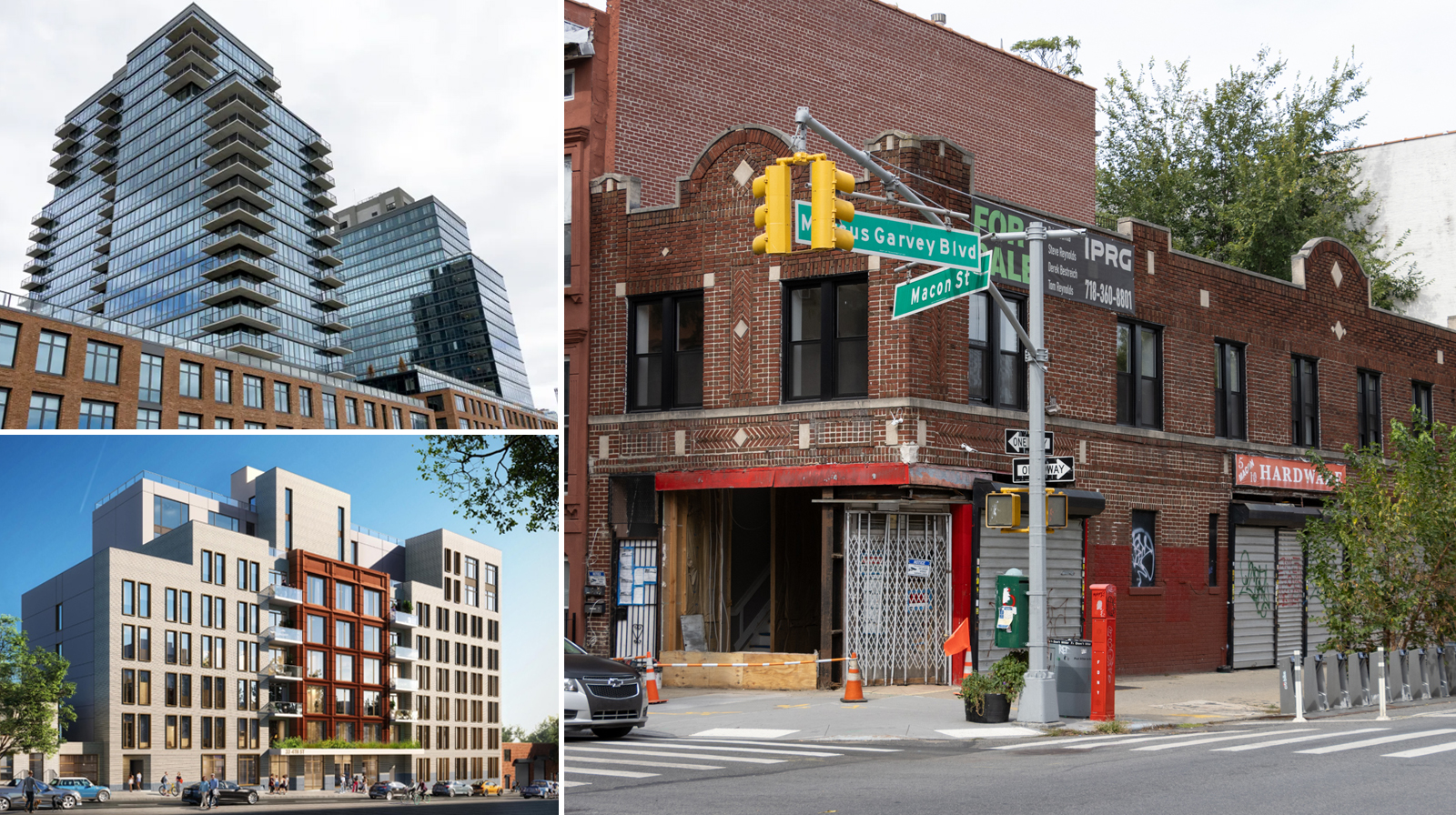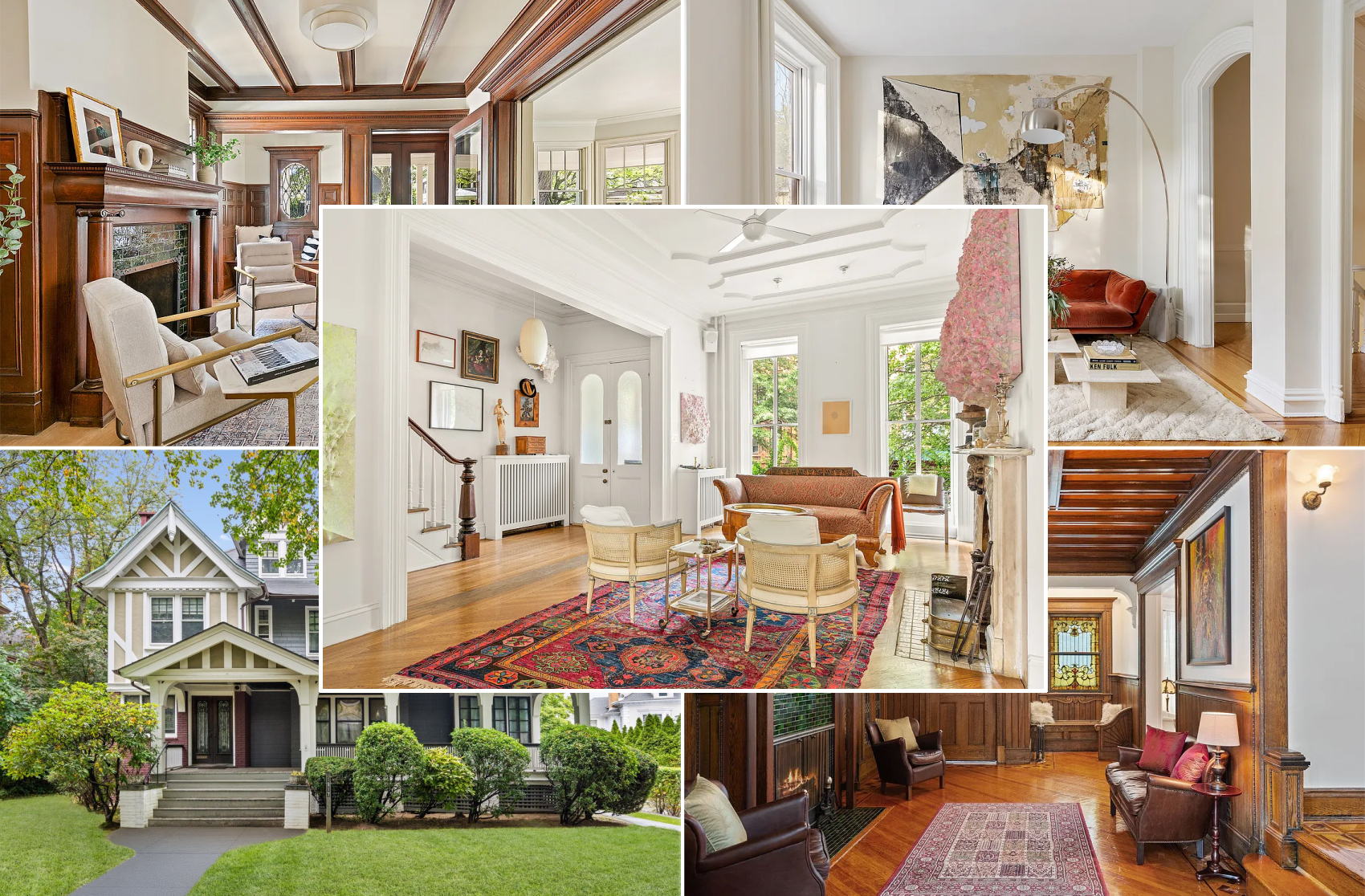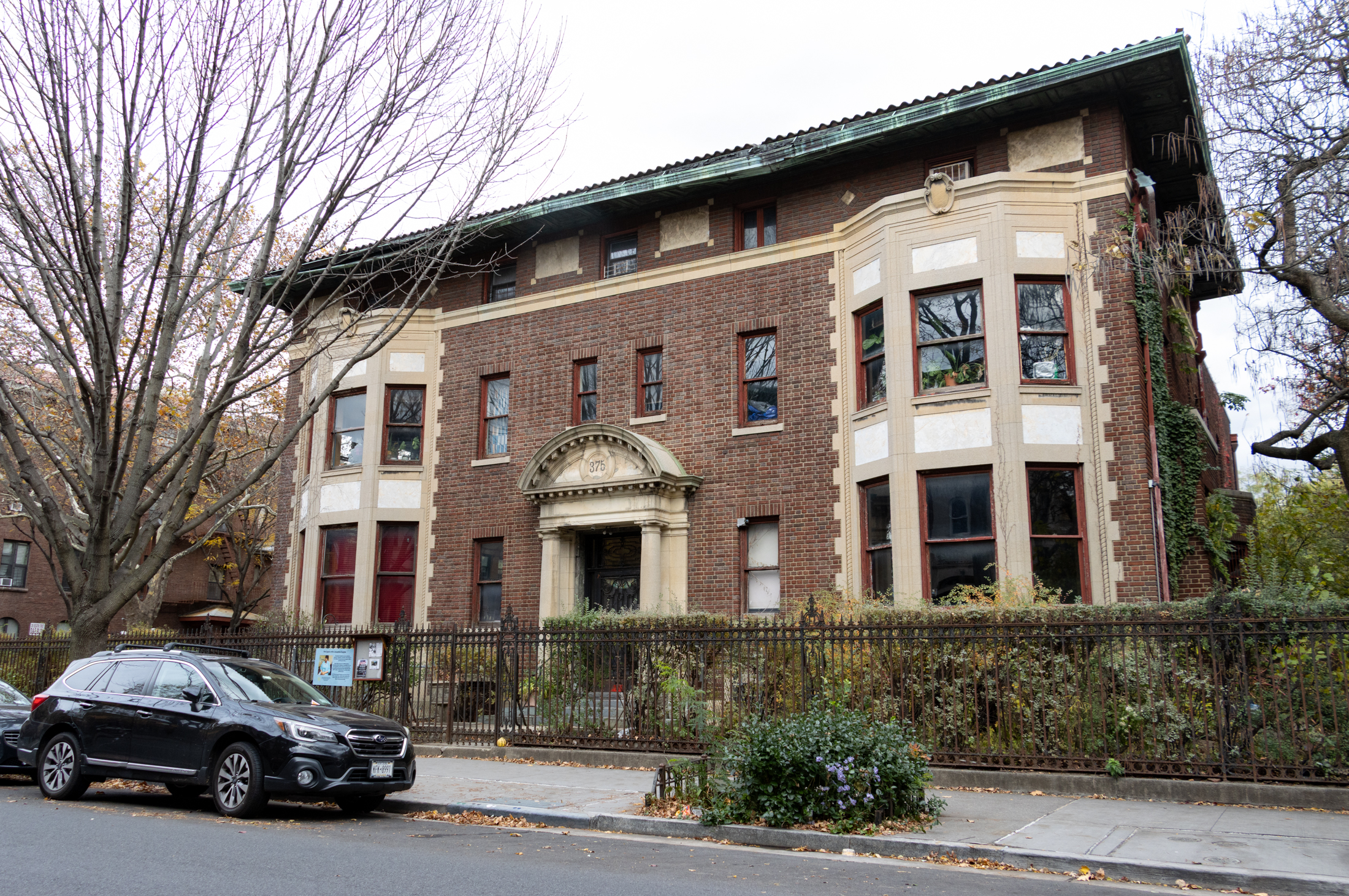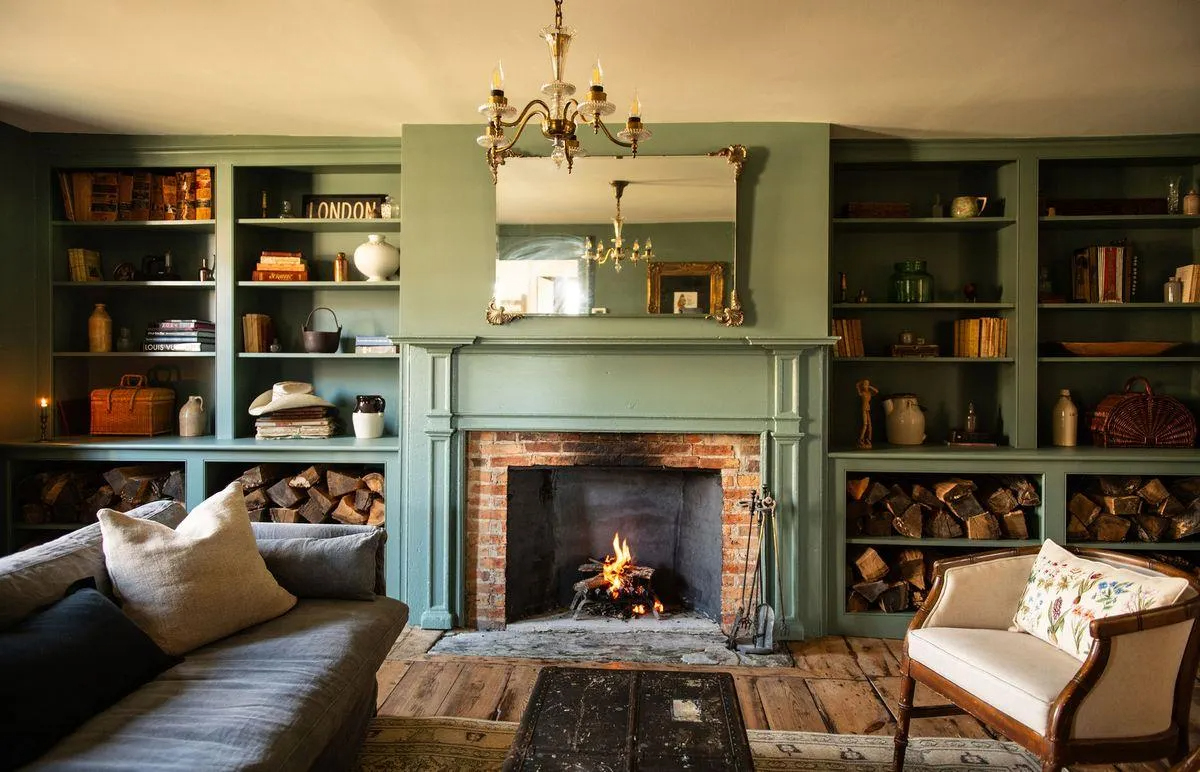Open House Picks: Six Months Later
Comment: Nice job on St. Marks Place; keep dreaming on Putnam. Open House Picks 5/09/08 [Brownstoner] Previous Six Months Later Posts [Brownstoner]


Comment: Nice job on St. Marks Place; keep dreaming on Putnam.
Open House Picks 5/09/08 [Brownstoner]
Previous Six Months Later Posts [Brownstoner]





Well dylanfan, that may have been true of your building, but I know tons of people who bought between 91 and 98, so plenty of sellers did sell. Pretending that no one will sell in this market is sticking your head in the sand. Besides, you yourself bought in 91, during the downtimes, so the person you bought from obviously could not “sit tight”, despite the fact that the studio was worth half what it was worth only a few years previously, by your own account.
In 1991, I bought a small studio co-op on the Upper West Side for 40K. The people in the studios above and below me had paid 80K a few years before when the building turned co-op. The small one bedrooms had sold at that time for 120K.
Until 1998, everyone sat tight. People lost jobs, got new jobs, got married, divorced, etc. No one sold; no one went into foreclosure. In 1998-9, the people above and below me sold for 120K and 135K.
Woops, I meant to say to traditionalmod, I’m not sure why you think so many sellers *would* be able to just ride it out this time. You and others assert sellers will “hold out” as if this will keep inventory low, and thus prices high, but the (sometimes sad) fact is, people always need to sell, and especially in times of financial distress which is going to hit from many sides right now.
Traditionalmod – last time there was a big housing downturn in NYC (late 80s-early 90s), plenty of people sold at a big loss. Not sure why you think so many sellers would not just be able to “ride it out” this time, when this financial crisis is much greater than any since the 30s. I have plenty of faith in Brooklyn’s long-term viability and disagree that a 25-50% reduction means it has to become an unlivable place. Fact is, it has not changed **that** much in the last 5 years, certainly not enough to merit the huge price increases, and I don’t think it will change that much on the way down either.
I don’t see how I’m a “market bear” when I did say prices will drop. My argument was that if values ever did drop as much as you claim they will, I really don’t see lots of people freaking out dumping their houses tragically taking 6-figure losses like you hope will happen to people. Because there is a lot of faith in the Brooklyn market either maintaining fairly well or recovering fairly quickly. Most owners hang in there and ride it out just like past generations did during a recession. Which means a smaller inventory available for sale, which then helps bring values back up. I just truly don’t think a 50% discount is realistic for certain places. For a brownstone in Park Slope to become a million dollars, Brooklyn would have to become a place you don’t want to live in anymore. That’s the irony.
One final point Traditionalmod – you, like other critics of the market bears – claim that we bears are somehow saying “old houses aren’t that really all that great”. Can you please show an example of this? I certainly have never said that. I love old houses, and I imagine most avid followers of a blog called “brownstoner” feel the same. So I repeat: it’s the price, stupid. That’s really the major thing the bears are disputing – yes, a lot of these homes may be beautiful, but the prices have become irrational and the bubble must pop. And it’s not up to the bears on the blog to “convince everyone real estate in NYC is plummeting” – a few anonymous posters on a blog don’t have that power. Rather, the evidence is all around us – the market is much bigger than any of we individual brownstoner posters!
Traditionalmod – maybe a more succinct way to put it is: it’s the price, stupid. (not calling you stupid, just a version of “it’s the economy, stupid). I’m not dissing Brooklyn – I love it, and it’s here I’ve made my home. I’m an active member of my community (was as an owner, remain so as a renter, and will continue when I buy my next place). Refusing to pay an irrational price does not mean you “see no future in Brooklyn” – just that you are not financially suicidal. I’m certain prices will continue to decline and when they become more rational, then I will indeed buy in this great Borough which I love but which, due to a crazy bubble, became overpriced in the last few years and will now experience a correction – which, mind you, will still leave prices plenty high compared to most of the US.
Traditionalmod – no doubt, the factors you quote are one of the reasons for rapid price appreciation in Brooklyn the last 10 years, but another, crucial reason, was easy credit and classic bubble behavior where everyone buys into the crowd mania that you don’t want to “miss out” as things shoot up. That kind of crowd behavior can also happen on the way down. I can’t stress enough that the rapid price appreciation of last few years – in some cases doubling in less then 4 years – was a major bubble fueled by lax credit and crowd mania. We ourselves were qualified to borrow way more than we thought prudent, and did not take advantage of this credit, knowing it was too risky – but many others did.
Your statement “you don’t yet see financially qualified buyers saying they prefer to rent an apartment instead of buying a house because they see no future whatsoever in Brooklyn” makes no sense. For one thing, there are plenty of financially qualified buyers – I’m one of them, and I know others in same position – who definitely DO prefer to rent an apartment right now, even if technically we could stretch to afford a house right now. The reason we prefer to rent is NOT because we “see no future in Brooklyn”. Rather, we don’t want to overpay by several 100K when prices ARE starting to tumble – witness more and more houses that get price chops of as much as 400K, and more, within a matter of weeks.
I do see a future in Brooklyn, but I also want to be financially prudent, since I, like many qualified buyers, also see that even with cash in hand, our other financial assets are shrinking (retirement/college savings) and our income might be vulnerable. And when all signs point to continuing declines, why should buyers, even well qualified ones, buy when prices seem sure to go down further. I know 11217 and I disagree hate when I repeat this, but attitudes like yours are precisely why I must repeat: only 4 years ago, prices for many properties were less than HALF what they were now. So really, why is a 25-50% decrease so unlikely? Sure, some sellers who don’t need to sell will take their places off the market, but other sellers – say someone who bought in 2004 and now is getting a divorce or losing their job – will realize that it’s better to sell at a price that is close to or just above what they bought for, and at least they have that cash in hand. And many others, who bought before 2004 will still make a profit. The people who bought since 2004 and may have to take a loss will be the people who suffer the most, and those distressed sellers may be the ones who are least able to just “take their place off the market”. All of this is classic downturn stuff. And your assertions sounds like classic denial.
I can’t help but note this about those who try to convince everyone real estate in NYC is plummeting, and old houses aren’t really all that great, and so on:
They still want to buy in Brooklyn.
That says it all. You don’t yet see financially qualified buyers saying they prefer to rent an apartment instead of buying a house because they see no future whatsoever in Brooklyn. That’s when to worry! But I don’t worry when the same people dissing the Brooklyn market are still very much wanting to buy here.
Right now there are sellers in Brooklyn still hopeful they can get a good price so they’re putting houses on the market and giving it a shot. Many will need to discount some more but if prices really did have to drop as much as people like Dow and Miss Muffet predict, 25-50%, then people simply won’t sell. Because there is a lot of faith in Brooklyn. Buyers want to know they aren’t overpaying so they’re waiting and cautious, but Brooklyn still totally has appeal to buyers. It is much cheaper than Manhattan, for people who want to stay in NYC. Buyers in Brooklyn are increasingly in higher income brackets. New Yorkers more and more want out of apartment buildings to have green space and yards and space and yet still be in an urban setting with public transportation. That movement is getting stronger not weaker. Those factors are important; one can’t just completely ignore them as inconvenient.